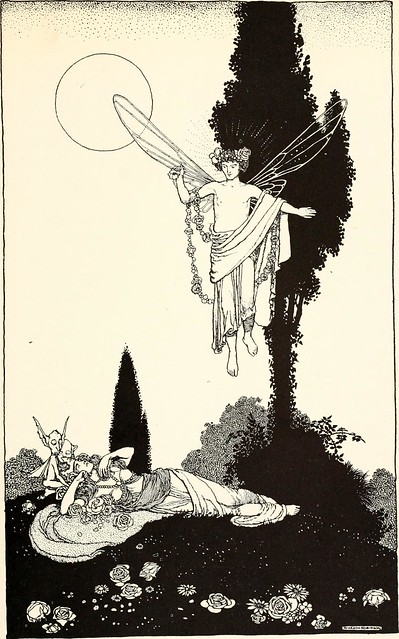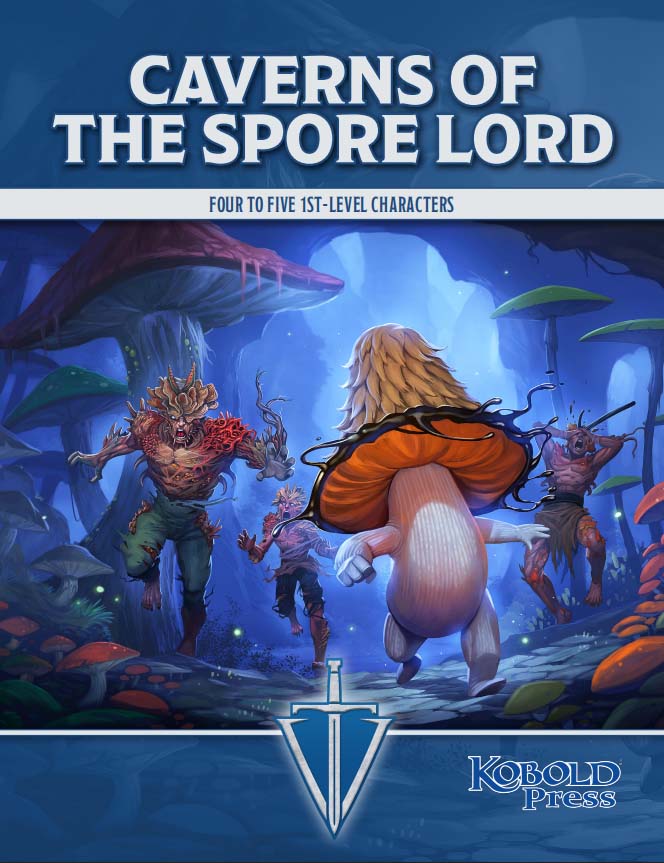 Greetings, travelers! And welcome to Beyond the Audience where we shall discuss a topic many in our community have on their minds: how do I build games that appeal to both my players and an overarching audience.
Greetings, travelers! And welcome to Beyond the Audience where we shall discuss a topic many in our community have on their minds: how do I build games that appeal to both my players and an overarching audience.
We find ourselves in an era where everyone either has an actual-play podcast, stars in a livestreamed game, is publishing adventures, or is dreaming of doing any number of the above. We occupy a space where our content isn’t built to delight solely our own tables anymore, so we aim to appeal to a wider audience. This series offers guidance to addressing that goal, honing in on a different topic each month.
But let’s dive in, shall we?
To start this off with a bang, I want to propose something that will sound general, but stick with me, for I promise it is full of specific applications. My first offering is simply this: leave blank space in your world. This phrase can be taken literally with your world maps or figuratively with your stories, though I recommend a hearty mixture of both. Players at a game table want to feel like the world of the story belongs to them, and this desire scales with the addition of a listening, viewing, or reading audience. Your players and your audience will inevitably decide which locations, which player characters, which “ships,” and which non-player characters are their favorites. Listening to their feedback and steering your game to embrace these favorites builds a huge rapport with your audience.
A great example of this can be found in the wildly popular actual-play podcast The Adventure Zone where a non-player character jokingly named Barry Bluejeans was so well-loved by the listeners that he eventually evolved into an integral part of the entire show.
All this isn’t to say that your audience should choose the entire course of your story. On the contrary, your audience wants to trust the majesty of the plot to the GM, for it is in exploring the mundane where most humor and joy can be found for your consumers. Calling on your audience to name the local tavern, to decide what the shopkeeper looks like, or to suggest the trinkets found by the players are some easy ways to invite your audience into the world of your game. There are a lot of shows out there using this method successfully: two I would recommend checking out are the podcasts You Meet in A Tavern and Fate and the Fablemaidens.
If the idea of incorporating audience suggestions makes you sweat, you can still adhere to the principle that is at the heart of this topic: actively listen to your audience. If you are creating something for the public, you absolutely must engage publicly.
Every GM I have cherished has one thing in common: an ability to successfully communicate. Frequent check-ins with players about their moods during games, their level of enjoyment, what they would like to see for their characters, are a sure-fire way to elevate a tabletop experience from good to outstanding. It should come as a surprise to no one that these principles extend to your audience at large. To find out what people love, you must listen to people. Today, an active social media presence is non-negotiable when building and maintaining a community.
When I began to build Venture Maidens four years ago, I had no idea how Twitter worked. Services like Discord and Twitch were a complete mystery to us as a team. As we began to scrape together an understanding of these platforms, the night-to-day shift of results was incredible. Suddenly, we had a way to hear what it was people liked about our show. We were able to absorb this feedback and steer our show in a direction that people truly valued. These days, we aren’t hustling for every follower, but you can bet your chips that I take the time to read every single Discord “spoiler thread” and note every piece of fan art. For what purpose? To tell me what should go in the blank space of our world. The characters that your audience love should fill the blank space; the plot threads people gasp over should be the ones that continue in your blank space; the hated villains, the loved relationships, and so on.
The best and truest advice I can ever offer is to not walk into your podcast, stream, or publication with every single detail filled in. The breathing space is what allows all those moments of humor and magic to arise around a table. And let’s face it, we all play to taste that little bit of magic, right?
Well, that’s all from me this week. So go out there and find out what your audience wants to see in those blank spaces! Until then, happy gaming.


Thank you for a well written primer on world building and how to adapt to when your players don’t want to follow the script.
Thank you for reading! Looking forward to diving deeper over the next few articles.
Yes, absolutely! Giving audiences space to explore your story and collaborate to some degree (while maintaining it in a structured manner so that it’s still creative rather than derailing or destructive) is so key to any public form of play via livestreaming and GMing…in fact I did my whole thesis on that specific relationship between audience and show in TTRPGs livestreams to learn more about it
Am excited to see more of this series!
That sounds like a fascinating thesis subject! Thank you so much for reading.
Great read! It has been years since I played D&D, but I’m guessing a GM is what we used to call the DM. Am I close?
It’s fun to imagine there would be an audience to the rollplaying we used to do. One of my favorite things was the debriefing after we had finished. You are now getting this in real time! How fun! I’m looking forward to reading your notes.
Everything you’ve said here applies to improvisational theatre of all types!
Thank you for stopping by Lauren! You are totally right that a ‘Dungeon Master’ (DM) & a ‘Game Master’ (GM) are one and the same!
It is an incredibly exciting time to be playing games, they are available for consumption in almost every media platform these days.
And I definitely agree on the improv point, I attribute a lot of what I do now to skills learned studying theatre in college.
Sounds like those theatre improv classes will come in handy with the ‘empty’ spaces
Thanks for this, great read! As someone looking to dip his toe into streaming TTRPGs, I’m looking forward to this series.
Wonderfully written! Celeste is the best DM in podcasting! ♥️
I agree. Not only do you need to leave a few blank pages in the notebook, your world will be all the greater for having that space to let it grow into.
Great topic.
Awesome stuff! Great ideas. Watching and listening to more games has really hammered this home for. Getting the players to engage and make the world their own makes for much more fun and fidelity. You never know exactly where it will go, but that’s something to work to getting used to. Just look at Jace Beleren Must Die, Adam Koebel just knows Ravnica and essentially let’s the party do whatever they want with the vague framework and it’s glorious! Hope you have a lovely week and happy gaming :)